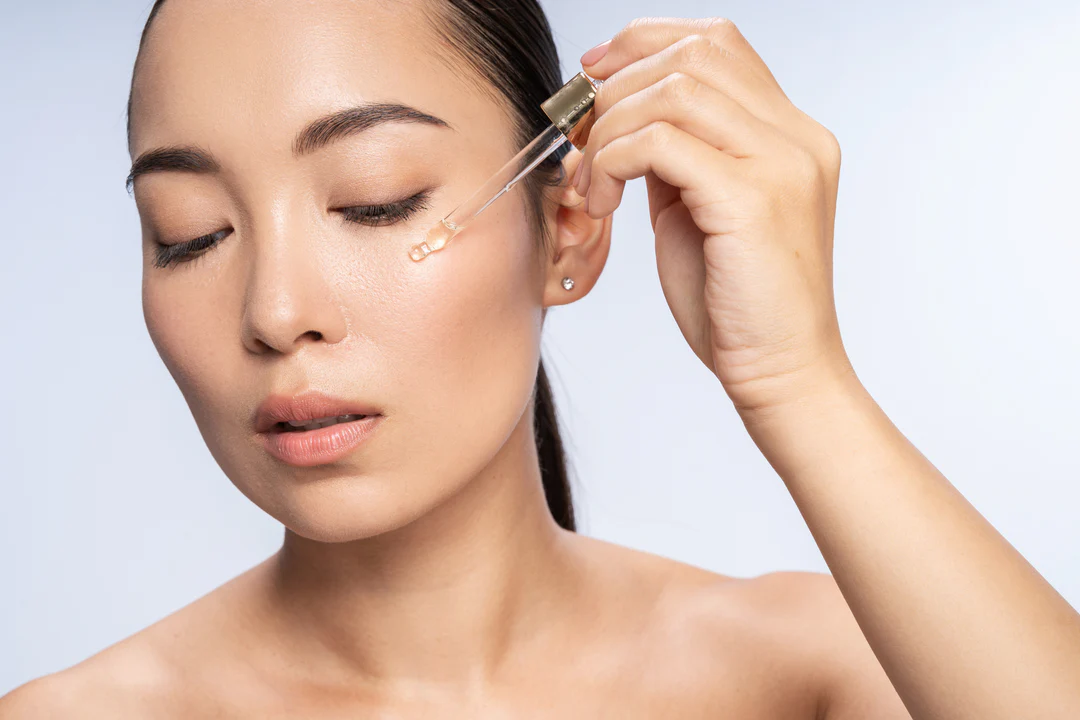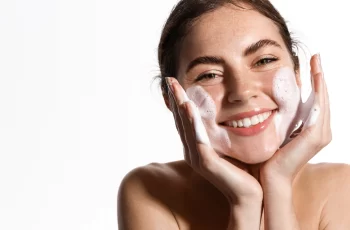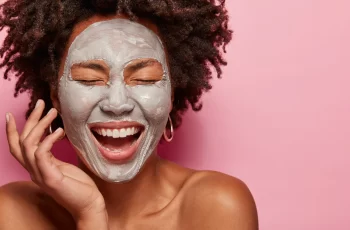
Can Peptides Be used with Tretinoin?
Peptides and tretinoin are two skincare ingredients that deliver quite impactful results but have not really got much understanding behind them. But just because they don’t have the same status or household name as the likes of, glycolic acid, hyaluronic acid, or retinol, you’ll still be so impressed with their benefits and how effective they are in your skincare routine.
What are Peptides?
Naturally occurring in the body, peptides are strings of amino acids which make up the building blocks of protein in the skin surface. When formulated for skincare products these synthetic peptides are cell communicating, meaning they can tell the cells in the lower layers of the skin to boost the production of collagen. This in time leads to a plumped, youthful complexion with visibly reduced signs of ageing. Don’t forget you can find out more about peptides on The Beauty Insiders blog.
What is Tretinoin?
Tretinoin, also known as all-trans retinoic acid and is a prescription skin ingredient. First used to help combat severe acne and frequent breakouts, since then it is also used to target signs of hyperpigmentation, such as sun damage and post acne scarring as well as premature ageing with fine lines and wrinkles notably reduced. Due to the potency of this ingredient, it is strongly advised that you introduce into your everyday skincare routine once you are given the green light from a medical professional. If you are wanting to know more about tretinoin and its benefits check out our dedicated blog post.
So, now you have a better understanding of what these ingredients do, we are now going to investigate whether peptides can be used with tretinoin.
Do peptides work with tretinoin?
Yes, it is generally considered that peptides work with tretinoin because of the fact they effectively work with other forms of retinol. I suggest using this powerhouse duo during your evening routine to avoid any excessive exposure to UV damage. Firstly, apply your tretinoin enriched product, especially if it is a serum as this will rid the surface of dead skin cells and debris. Follow this with your peptide product as this will penetrate the skin quickly and effectively.
Much like all potent skin ingredients it is important to ensure your skin is happy and able to build its tolerance so always ensure you consult with a doctor before applying anything new to your face.
Can tretinoin and copper peptides be used together?
No, it is considered best to avoid using copper peptides and tretinoin together. Copper peptides increase the blood flow for the skin which often leads to any minor damage to the skin becoming easily increased. Combining this with the common side effect of redness and flushing to the skin that comes from using any form of retinol. By using these together you’ll find they increase skin sensitivity and result in all many of skin irritation. Therefore it is best to avoid layering these ingredients, but you can alternate the time of day you apply them to the face, for example, copper peptides during the morning and tretinoin in the evening.
What can you not mix tretinoin?
It is very important to not apply any other potent acne fighting ingredients to the skin when you are already using tretinoin. These ingredients are, salicylic acid, benzoyl peroxide, sulfur and other forms of retinol. This will lead to severe skin irritation, redness, dryness as well as other side effects. If you have any worries or concerns with using your skincare products consult with your doctor or dermatologist for peace of mind.
What is tretinoin vs retinol?
Tretinoin and retinol each provide similar and effective skin benefits as each other. The main difference you can expect is the level of strength and potency found in skincare formulations. Tretinoin is a prescription only ingredient and is pure retinoic acid meaning it is highly potent. Retinol can also be potent but is also a lot more manageable to introduce into your skincare routine. This is because retinol can not only be prescribed, but also found in over the counter formulations containing lower percentages of active levels of retinoids.
What should you not use peptides with?
Copper peptides contain a great selection of benefits for the hair and skin resulting in their popularity increasing rapidly in recent years, here are some of the main benefits:
Increased blood circulation boosts hair growth by stimulating hair follicles
Boost of collagen production reduces the appearance of fine lines and wrinkles
Skin firmness is improved thanks to the collagen and elastin production increased
Antioxidant benefits help protect the skin from daily exposure to free radical damage
The skin tone becomes more even with dark spots, acne scarring, and pigmentation reduced, and skin surface repaired
When it comes to layering peptides with other effective skin ingredients there are some popular ones that should be avoided.
Retinol
Retinol Tretinoin Vitamin C AHAs/ BHAs such as glycolic acid and salicylic acid Are peptides good for wrinkles? Absolutely! Peptides are highly effective at reducing the appearance of fine lines, wrinkles, and loss of firmness to the skin. As I have already mentioned, peptides act as building blocks for the collagen and elastin found in the lower layers of the skin. By boosting the production of collagen, you are left with a plumped, smoother complexion that has a youthful bounce. Can I use peptides in the morning? Yes, you can indeed! Applying peptides in the morning will boost collagen and increase blood flow giving you an all over improved, healthy, and vibrant skin. You can also use peptides twice a day in both morning and evening routines for maximum results, just if you alternate applying tretinoin to avoid unwanted irritation. Do peptides tighten skin? Yes, they do! This is because peptides have the ability to stimulate the production of collagen you will find the overall look and feel of the skin will improve. Signs of loose skin, lack of elasticity and reduced skin firmness are all combated with regular application of products enriched with peptides. I hope that is answers your questions about peptides and tretinoin, but don’t forget if you have any concerns come and follow us on Instagram, you’ll find me there!
DQH Knowledge drop: In your 20s, your skin cell turnover decreases. (Cell turnover is a key component in keeping your skin youthful.) You know what else slows down? Your collagen production. Starting in your 20s, collagen decreases by about 1 percent per year. Should you want to prevent fine lines and wrinkles, start by eliminating behaviors that contribute to premature aging. “If it’s bad for you, it’s bad for your skin,” says dermatologist Michel Somenek.
“Cigarette smoking reduces blood flow to the skin and causes premature wrinkling and a dull skin texture. Making the repeated pursed motion to inhale can also cause smoker’s lines. Alcohol and recreational drugs are toxins for the skin that damage its cellular structure and DNA,” Somenek tells us. “The faster you eliminate vices while you are young, the better chance your skin and body have to recuperate.” Also, adopting an anti-aging routine in your 20s is key. After all, the best offense is a good defense. We spoke to Somenek and experts Joshua Ross and Audrey Kunin to find out more.
Keep reading for the best anti-aging products for your 20s, according to skincare professionals.
Sunscreen
“We all know that the sun is the number one cause of skin aging and starting the prevention in your 20s is very important,” Ross says. “The majority of your sun damage won’t start to appear until you’re in your 30s, so don’t wait until you see it surface or you’ll be behind the curve. Stay ahead of it with a good-quality zinc-based sunscreen worn daily.”
Farmacy Green Defense Daily Mineral Sunscreen
An invisible sunscreen with SPF 30, plus botanical extracts meant to protect skin with tons of antioxidants. Bonus: It’s clean and fine to use under makeup.
Bareminerals Complexion Rescue™ Tinted Moisturizer Broad Spectrum SPF 30
Although we recommend you use your SPF and moisturizer separately, we also understand moments when you don’t have time or energy for that extra step. For those times, this bareMinerals moisturizer is a great thing to have on hand.
Vitamin C Serum
“A great introduction to anti-aging is to start with a vitamin C serum in your morning skincare routine,” Ross says. “It’s a powerful antioxidant that will neutralize free radicals and brighten the skin.” He adds that it’s a great way to counteract the effects of the sun’s harmful rays, which, as previously mentioned, are among the biggest causes of premature aging.
Drunk Elephant C-Firma™ Vitamin C Day Serum
The Drunk Elephant C-Firma is a lightweight serum that promises to give skin a glow by combining the brightening powers of vitamin C with ferulic acid, l-ascorbic acid, and vitamin E. The included sodium hyaluronate is meant to replace hydration loss, so you shouldn’t have to deal with any irritation.
Sunday Riley C.E.O. Rapid Flash Brightening Serum
This potent serum is jam-packed with vitamin C (15 percent, to be exact), which means it’s a potential superstar at both brightening skin and dousing it in antioxidants.
Peptides
Using peptides on your skin has many benefits, says Somenek. “The skin barrier is what defends the body against pollution, UV rays, bacteria, and toxins. It can be damaged by several everyday factors. Using topical peptides aids in building a stronger barrier,” he says. “Peptides comprise elastic fibers, which are a type of protein. These fibers help to make skin appear taut and firm. Peptides can also help repair damaged skin, relieve inflammation, and even out skin tone. Some peptides can kill acne-causing bacteria that is common in 20-somethings.”
Kunin agrees, saying, “Peptides are an excellent entry point for supporting collagen.” She recommends looking for face and eye treatments that contain these collagen-boosting powerhouses.
Charlotte Tilbury Magic Eye Rescue Cream
This Charlotte Tilbury super-emollient eye cream has a base of coconut oil and shea butter (read: it’s incredibly hydrating). Botanicals plus peptides are meant to help reduce dark circles and boost collagen, respectively.
This creamy moisturizer serves up potent collagen-boosting peptides and pycnogenol, and antioxidant-rich vitamin C. “Instead of sitting on top of the skin, peptides penetrate the outer layer so they go deep. The ‘signals’ they send tell the cells to produce elastin and collagen, which are needed for youthful-looking skin,” explains Somenek.
At-Home Peel Pads
Remember that skin cell turnover fiasco we talked about earlier? One way to help support it is by exfoliating. “Exfoliation is important to help keep skin fresh and luminous,” Kunin says. She recommends using at-home peel pads as an easy and effective way to exfoliate.
“The goal in your 20s is to fight the slowing pace of cell turnover. It is wise to use products that gently exfoliate, yet still remove oil and other impurities. Products that have Alpha Hydroxy Acids (AHA) or Beta Hydroxy Acids (BHA) are a good choice.”
According to Somenek, you should only exfoliate two to three times a week. “People of all ages are guilty of over-exfoliating and that can be too much of a good thing,” he says.
Dermadoctor Kakadu C Intensive Vitamin C Peel Pad
A few swipes of this Derma Doctor powerful peel pad promise to leave your skin glowing and smooth, thanks to the seven (yes, seven) types of chemical exfoliants, including AHA and BHA. It also contains vitamin C via Kakadu plum extract for added brightening and antioxidant protection.
KEY INGREDIENTS Kakadu plum extract is sourced from the Kakadu plum, a fruit grown in northern Australia. It contains vitamin C, which restores the skin’s natural barrier, increases collagen production, and soothes irritation.
Dr. Dennis Gross Skincare Alpha Beta® Universal Daily Peel Pads
These are the gold standard of peel pads, with a cult following and over 900 five-star reviews on Sephora. They’re easy to use and contain a blend of anti-aging exfoliating acids.
Emollient Night Cream
“In your 20s, you need to start upping the hydration in your skincare routine. You may have been cautious of over-moisturizing because of acne in your teens, but as you enter your 20s, your skin transitions and becomes drier,” Ross says. “I recommend an emollient night cream added into your evening skincare regimen.”
“Twenty-somethings need to make sure that they are not using creams that will clog their pores and cause excess oil production,” says Somenek. Opt for non-comedogenic products.
Cerave Skin Renewing Night Cream
One great choice is the CeraVe Skin Renewing Night Cream, which is a non-comedogenic night cream that leaves skin soft and glowy. It combines the moisturizing powers of ceramides and hyaluronic acid.
RoC Retinol Correxion Max Hydration Creme
“The best night cream ingredients contain retinol, benzoyl peroxide, and/or salicylic acid or hyaluronic acid. The goal is to moisturize, yet remove excess oil,” says Somenek. This Roc Retinol Correxion cream fits the bill as it contains both hyaluronic acid and retinol so it promises to moisturize while also being non-comedogenic.


